The CEO Next Door
The authors, Elena and Powell carried out groundbreaking research which reveals the common attributes and counterintuitive choices that set apart successful CEOs. The CEO Next Door draws on the most significant dataset of the CEOs in the world with the real habits of top leaders. Elena and Powell focus on the “four Genome behaviors” that separate great leaders from the rest.
- Great leaders are decisive. They make fewer decisions, make them faster and get better every time.
- Great leaders engage for impact. They lead with intent, understand the players and build relationships through routine.
- Great leaders are radically and relentlessly reliable. They embrace “the thrill of personal consistency,” set bold but realistic expectations, “stand up to be counted on,” and adopt the drills of highly reliable organizations”.
- Great leaders adapt Boldly. They ride the discomfort of the unknown, respect but are not a hostage of the past and build an antenna for the future.
Great leaders are women and men who hold themselves to very high standards for personal character and professional achievement. Only then can they hold others to the same very high standards. CEO Next Door debunks a host of popular myths about CEOs which has created a misconception about what a CEO is like. The authors set to eradicate the myth with facts that are derived from an impressive database of intensive interviews with executives. Some of the myths are:
- CEOs are from Ivy league universities while the truth, based on research, is only 7% of CEOs graduated from Ivy league university. 8% of CEOs did not even have a college education
- CEOs are destined for greatness from an early age while the truth is over 70% of the CEOs interviewed did not set out to be CEOs
- CEOs have larger than life personality with enormous charisma and confidence while the fact is a third of the CEOs described themselves as introverted.
- To become a CEO, you need a flawless resume while the truth is 45% of CEOs interviewed had at least one major blow up or mishap in their career.
The fact is, successful CEOs stood out for decisiveness itself- the ability to make decisions with speed and conviction. They make decisions with only 80% of the information available to them, and they reach out for others perspectives because they realize that all input is not created equal.
Drawing on an exceptional analysis of thousands of current and potential CEOs, they find that the best of the best share some similar traits. They may not come from outstanding schools, but they do know how to make smart decisions, adapt to changed circumstances and work honestly and directly with customers and employees. Culled from the breakthrough study of most successful people in business and illustrated by real-life stories from CEOs and boardrooms, The CEO Next Door offers career advice for anyone who aspires to get ahead. Botelho and Powell, utilizing research, tell us how to:
- Fast-track careers by deploying the career catapults used by those who get to the top quickly.
- Overcome the hidden handicaps to getting the job you want
- Avoid the hazards that most commonly derail those promoted into a new role.
This book is recommended not only for the aspiring CEO, but for anyone who aspires to accelerate their career trajectory and looking to raise their leadership to a higher level.
THE BIG THREE – KEY POINTS
Key point #1: CEO Next Door uncovers Four Genome Behaviors of a CEO:decisive, engaging, reliable, and adaptable.
Key point #2: One of the greatest myth is that great CEOs are from Ivy league universities while the truth, based on research, is only 7% of CEOs graduated from Ivy league university. 8% of CEOs did not even have a college education.
Key point #3: One surprise is that 70% of the CEOs didn’t intend to become CEOs when they set out on their career paths, or even mid-tenure in their career. It was only when that role became within striking zone for them that it became a relevant career aspiration.
One last thing:
“Every time you make the hard, correct decision you become a bit more courageous, and every time you make the easy, wrong decision you become a bit more cowardly. If you are CEO, these choices will lead to a courageous or cowardly company.” – Ben Horowitz, CEO of Opsware
